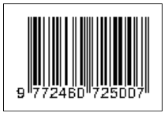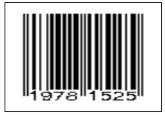Case-Based Reasoning for Stroke Disease Diagnosis
Nelson Rumui(1*), Agus Harjoko(2), Aina Musdholifah(3)
(1) Master Program of Computer Science; FMIPA UGM, Yogyakarta
(2) Departemen Ilmu Komputer dan Elektronika, FMIPA UGM, Yogyakarta
(3) Departemen Ilmu Komputer dan Elektronika, FMIPA UGM, Yogyakarta
(*) Corresponding Author
Abstract
Stroke is a type of cerebrovascular disease that occurs because blood flow to the brain is disrupted. Examination of stroke accurately using CT scan, but the tool is not always available, so it can be done by the Siriraj Score. Each type of stroke has similar symptoms so doctors should re-examine similar cases prior to diagnosis. The hypothesis of the Case-based reasoning (CBR) method is a similar problems having similar solution.
This research implements CBR concept using Siriraj score, dense index and Jaccard Coeficient method to perform similarity calculation between cases.
The test is using k-fold cross validation with 4 fold and set values of threshold (0.65), (0.7), (0.75), (0.8), (0.85), (0.9), and (0.95). Using 45 cases of data test and 135 cases of case base. The test showed that threshold of 0.7 is suitable to be applied in sensitivity (89.88%) and accuracy (84.44% for CBR using indexing and 87.78% for CBR without indexing). Threshold of 0.65 resulted high sensitivity and accuracy but showed many cases of irrelevant retrieval results. Threshold (0.75), (0.8), (0.85), (0.9) and (0.95) resulted in sensitivity (65.48%, 59.52%, 5.95%, 3,57% and 0%) and accuracy of CBR using indexing (61.67%, 55.56%, 5.56%, 3.33%, and 0%) and accuracy of CBR without indexing (62.78% 56.67%, 55.56%, 5.56%, 3.33%, and 0%).
Keywords
Full Text:
PDFReferences
[1] Yayasan Stroke Indonesia, Sekilas tentang stroke, 2016 [Online]. Available: http://www.yastroki.or.id/read.php?id=340, [Accesed: 23-Jun-2016].
[2] Kementerian Kesehatan Republik Indonesia, 2016 [Online]. Available: http://www.depkes.go.id/article/print/15082800001/indonesia-tuan-rumah-pertemuan-penyakit-tidak-menular-regional-asean.html, [Accesed: 23-Jun-2016].
[3] A. Sherin, A. Khan, S. Rehman, N. H. Shah, G. Shabbier, and M. Zarif, “Comparability and validity of Siriraj stroke score and Allen stroke score in differentiation of acute ischemic and haemorrhagic stroke”, JPMI (Journal of Post Graduate Medical Institute), vol 3, pp. 206-216, 2011.
[4] Hans and D. Burkhard, ”Case Completion and Similarity in Case-Based Reasoning”, ComSIS, vol. 1, no. 2, pp. 28, 2004.
[5] Clustan, Computing Proximities, 2017 [Online]. Available: http://www.clustan.talktalk.net/computing_proximities.html, [accesed: 06-Jul-2017].
[6] Baig and Mariam, Case-Based Reasoning - An Effective Paradigm For
Providing Diagnostic Support For Stroke Patients, Thesis, School of Computing, Queen’s University, Canada, 2008.
[7] T. Rismawan and S. Hartati, “Case Based Reasoning untuk Diagnosa Penyakit THT (Telinga Hidung dan Tenggorokan)”, IJCCS (Indonesian J. Compt. Cybern. Syst.), vol. 6, no. 2, pp. 67–78, Jul. 2012 [Online]. Available: https://jurnal.ugm.ac.id/ijccs/article/view/2154/1934, [Accesed: 10-Jun-2017].
[8] E. Wahyudi and S. Hartati, “Case-Based Reasoning untuk Diagnosis Penyakit Jantung”, IJCCS (Indonesian J. Compt. Cybern. Syst.), vol. 11, no. 1, pp. 1–10, Jan. 2017 [Online]. Available: https://jurnal.ugm.ac.id/ijccs/article/view/15523/11717, [Accesed: 10-Jun-2017].
[9] G. Dewanto, Suwono, B. Riyanto, and Y. Turana, Panduan Praktis Diagnosis dan tata Laksana Penyakit Saraf, Jakarta: Buku Kedokteran EGC, 2007.
[10] P. K. Sankar and S. C. K. Simon, Foundations of Soft Case-Based Reasoning, New Jersey: John Wiley & Sons Inc, 2004.
[11] P. Widiastuti and A. Nuartha, “Sistem Skoring Diagnostik untuk Stroke: Skor Siriraj”, CDK (Cermin Dunia Kedokteran) Ed. 233, pp. 10, 2015.
[12] K. M. Jha, D. Pakhira, and B. Chakraborty, “Diabetes Detection and Care Applying CBR Techniques”, IJSCE (International Journal of Soft Computing and Engineering), vol. 6, no. 2, pp. 132-137, 2013.
[13] J. Phillips, “Jaccard Similarity and Shingling”, 2013 [Online]. Available: https://www.cs.utah.edu/~jeffp/teaching/cs5955/L4-Jaccard+Shingle.pdf, [Accesed: 19-Jun-2016].
[14] J. Han, M. Kamber, and J. Pei, Data Mining Concepts and Techniques Third Edition, San Francisco: Elsevier Inc, 2012.
Article Metrics
Refbacks
- There are currently no refbacks.
Copyright (c) 2018 IJCCS (Indonesian Journal of Computing and Cybernetics Systems)

This work is licensed under a Creative Commons Attribution-ShareAlike 4.0 International License.
View My Stats1







